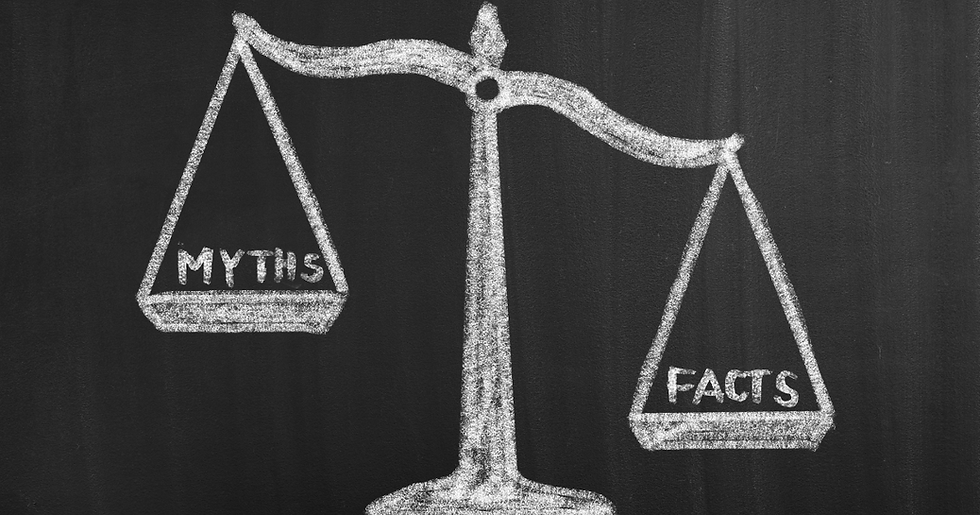How to Navigate the Holidays with Chronic Pain
- Linda Bluestein, M.D.

- Nov 29, 2023
- 3 min read
Updated: Dec 28, 2023
The holiday season often brings joyful gatherings, festive lights, and heartwarming traditions. It’s usually a time of immense joy for many. However, for those living with chronic pain, the holidays can bring a unique set of challenges that can dampen the spirit of the season.

As an integrative pain management physician who specializes in treating conditions like Ehlers-Danlos Syndrome (EDS), Hypermobility Spectrum Disorders (HSD), Mast Cell Activation Syndrome (MCAS), and dysautonomia (eg: Postural Orthostatic Tachycardia Syndrome or POTS), I observe the dire affects these conditions have on my patients. So if you struggle with chronic pain and are dreading the holidays, take a look at some of our helpful tips and resources for a (hopefully) better holiday season!
Acknowledge Your Limits
The first step in approaching the holidays is to acknowledge and respect your limits. Living with chronic pain requires individuals to adjust their expectations and accept that certain challenges may prove to be more challenging, especially if accommodations aren’t provided. Recognizing this reality is not a sign of weakness but a demonstration of strength and self awareness. It’s important to be kind to yourself and understand that your well-being takes precedence over meeting societal or personal expectations. It’s not only more safe, but also quite empowering to make choices that prioritize your health.
Proper Planning

Planning is key when managing persistent pain during the holidays, and really during the rest of the year as well. Approaching your schedule in a way that spreads out tasks to avoid overwhelming yourself is vital. Be sure to prioritize activities that bring you joy and consider alternatives for ones that may increase your pain. For example, lengthy events may prove difficult for those with chronic pain. Consider shorter visits or choose specific events that are less physically demanding. A detailed plan not only helps you navigate the season more efficiently but also allows you to conserve energy for moments that truly matter.
Communication is Everything
Effective communication is essential, especially during times that may be chaotic. Share your needs and limitations with friends and family. This will help them understand the difficulties you may face. Loved ones will likely appreciate your honesty, and this can foster a supportive environment. Encourage open conversations about your condition(s), and suggest alternative ways to participate in holiday festivities that align with your comfort level.

For those with a less than supportive family, it’s crucial to approach these conversations with patience and resilience. It may be important that you consider seeking support from friends, or even exploring online communities and support groups where others with chronic pain are able to relate to your experiences. If direct communication is unsuccessful, it may be beneficial to write down your thoughts, this gives you a chance to clearly outline your situation, the specific challenges you face, and the support you require. In instances where familial support is limited, seeking the guidance of a mental health professional or counselor can offer coping mechanisms and provide emotional support.
Seek Professional Advice

If you need to adjust your pain management plan during the holidays, seeking professional help can be challenging during these times. While it might be too late for immediate changes this year, initiating a conversation with your physician and proactively devising a plan to manage potential flares is crucial. Equipping yourself with readily available flare-up medications and/or supplements, acquiring knowledge on handling various foods you might encounter, and ensuring alternatives for allergies or sensitivities will significantly ease the holiday experience.
And make sure to check out my podcast Bendy Bodies with the Hypermobility MD to learn more about conditions like EDS, HSD, MCAS, and dysautonomia. Share the podcast with friends, family, and healthcare professionals to help spread the word about these complex conditions. Follow the podcast on your favorite podcast player so you won't miss any episodes.
Feel free to share your own strategies for navigating the holidays in the comments below.
Here’s to a safe and enjoyable holiday season!
Linda Bluestein, MD
The Hypermobiltiy MD
PS. Need more support? Click here to schedule a one-on-one session with me.




Comments